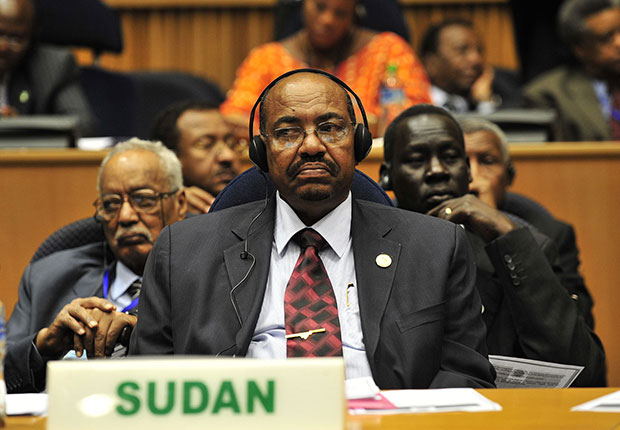I knew it could happen to anyone, but I also knew it wouldn’t happen to me.
I knew it wouldn’t because I had heard the stories growing up and
because I knew the statistics. It wouldn’t happen to me because I’d
watched a friend and fellow pastor wreck his life. It wouldn’t happen to
me because I read articles like the one you’re reading now and sagely
nodded my head to its advice, hoping those reading it would listen
because it could happen to anyone.
Except not me, because I knew better. Except I didn’t, and it almost did.
A friendship with a fellow co-worker turned into a mutual attraction.
I tried to pray it away. I tried ignoring it. I even told a couple of
friends about it for accountability. But the attraction and danger only
intensified. Eventually, I faced a choice between wrecking my family,
ministry and pastoral calling or telling my boss what was going on. By
the grace of God I did the second, and it’s only because of that
decision the word “affair” isn’t part of my story.
But there have still been consequences.
I have had to go through the long and painful process of re-earning
my wife’s trust. The unhealthy relationship I formed shattered the trust
of the team I led, and I ended up losing my job. I had to stand before a
ministry I loved and announce I was leaving. I became one of the
stories I’d heard growing up. I was a statistic.
There’s a lot of hope in the middle of the sadness. Because God is
who he is, things are being made new. My marriage has never been
stronger, I’ve never been more emotionally or spiritually healthy, and
not only has God not given up on me, but he is also using this terrible
last year to do necessary surgery on the deeply wounded recesses of my
soul.
But I wish so badly I had done some key things differently. If I
could go back and do things over again here are three key things I would
change. I’m writing these down because while it’s too late for me, it
might not be for some of you who are currently reading this.
FOCUS ON YOUR FAMILY
When my first child was born, I didn’t respond well. He was up for
hours a night screaming, he had eczema, wasn’t breastfeeding well and
wasn’t responding to any of the ways we were trying to fix these things.
My wife and I were constantly fighting, so I emotionally withdrew. I
didn’t realize this at the time but I had substituted connecting with my
work over connecting with my wife. Of course, she noticed. She said we
were fighting too much and that she wanted to read marriage books and go
to counseling. I told her this was just a stressful season, that this
was completely normal, and we’d get through it.
I was wrong.
What I realize now is I had authentic emotional and relational needs,
but I’d cut myself off from their legitimate fulfillment. When I
stopped being vulnerable with my wife I dammed up the river of my heart,
but all that water was going to flow somewhere.
Over the past year, I’ve learned what true emotional vulnerability
with my wife looks like. I’ve learned how important it is for us to sit
on the couch after the kids go to bed and talk about life. I’ve learned
how to hear her anxiety, fear, and frustrations not as an extra burden
to either carry or avoid but as an opportunity to connect and say “me
too.” I’ve discovered that while I chase false intimacy and run from
vulnerability I can unlearn that.
I wish I could go back a year and tell myself “your wife is right.
You’re emotionally disconnected, and you’re neglecting her and putting
yourself in danger. Focus on your family.”
YANK OFF THE BAND-AID
Feeling a strong connection to someone who’s not your wife isn’t a
sin, but hiding that connection is. When I realized my feelings had
turned a strong and dangerous corner, I felt deeply ashamed. There was
something wrong with me. I was broken. To feel something so strongly
meant I had already cheated on my wife in my heart. Of course, none of
that was true, but the feelings I had were so strong they felt true. The
most painful and ugly thing to admit now is that on some level, all
this felt good. I wanted to hold on to this inappropriate relationship I
had developed because the emotional waters I mentioned earlier were
being redirected and it made me feel alive.
Because of this, I was slow to give the honest version of what was
happening to other people. When I initially told a couple of close
friends what was going on I minimized the intensity of what I was
feeling. When I told my wife I did the same. And when I eventually told
my boss what was going on I didn’t lie but left out embarrassing details
that would have helped him realize how serious the situation was.
Looking back I think there’s a scenario where if I had been brutally,
painfully honest right away – if I had pulled the band-aid off in one
tug – I could have saved my job and put my wife through a lot less pain.
But because I was ashamed I only told part truths. I’m still paying the consequences for that choice.
LET GOD DO THE DEEP WORK
Affairs, much like smoking cigarettes, aren’t about a lack of
knowledge. Both wreck lives and yet people know that and choose them
anyway. Why?
What I have realized in the past year is there are huge reservoirs of
buried pain in my life. I grew up in a family dynamic that didn’t know
how to express anger or hurt. I had very little emotional connection
with my mom. And I was sexually abused by a camp counselor in 6th grade,
something I’d never told anyone other than my wife.
Until this past year, I barely knew how all this affected my interior
world. I was reading my Bible, praying, and trying to follow Jesus as
best I knew how. But because there were enormous, undealt with wounds
from my past I was blind to my deepest vulnerabilities and unaware of
how little I knew how to receive God’s love.
Over the past year, I have seen a counselor every week and a
spiritual director every month. On multiple occasions I’ve sat on the
floor of my living room at night, crying from the deepest hurting places
of my heart, asking God to heal the wounds from my past. In Isaiah and
then again in Luke we are told a crucial part of God’s kingdom work is
to heal the brokenhearted. I get what that means now.
It’s so tempting for pastors to live out of the outer layers of their
heart while bubbling underneath is fear, fear, and more fear. This
shows up as pride, lust, anger, insecurity and emotional exhaustion but
so much of it comes down to this: we are afraid we are unlovable. We’re
afraid we really are failures. We are afraid the wounding words from our
past are true. We don’t believe we are children of God, accepted freely
and wholly by the death and resurrection of Jesus. We say these words
to our church communities every week but we don’t believe them for
ourselves.
To accept God’s love in the deepest parts of our soul means letting
God do the deep work, to let him speak into our fears and free us. It
involves accountability, a wise mentor, and a counselor who loves God
and is skilled in their profession in equal measure. This is ultimately
what ends affairs before they begin: learning how to accept the infinite
love our Father has for us.
There’s one last thing I would want to tell myself a year ago: you’re going to be okay.
Tear off the band-aid. Do the deep work. Come out of hiding and embrace
the painful journey of healing. If you do that, God is going to take
care of you.
I say this now because while I would never again want to go through
this last year, I wouldn’t trade the new life God has birthed inside me
for all the ministry success in the world.


















